Table of Contents
- 1 What Are Survival Communities?
- 2 Benefits of Joining Survival Communities
- 3 How to Find and Join Survival Communities
- 4 Building Your Own Survival Community
- 5 Tying Survival Communities to Financial Sovereignty and Tech Tools
- 6 Join Our Community and Start Today
- 7 Common Questions About Survival Communities
Views: 68
Welcome to this guide on survival communities. I am The DeFi Raider. My main focus is on individual sovereignty with tech such as AI and DeFi. But I also share survival skills that tie into these topics. Survival communities tie into all of this. They help you stay strong in tough times. My survival skills are basic but growing. But I am learning more every day. Lets grow together.
This guide fits with our site’s three areas. Survival prepping gets better with others. Financial sovereignty means sharing financial and economic knowledge. Tech tools connect us and allow for wonderful things. Join our Telegram group, Epic AI, DeFi and Technological Tomfoolery. Share your community stories there. Let’s start building better bonds for better lives.
What Are Survival Communities?
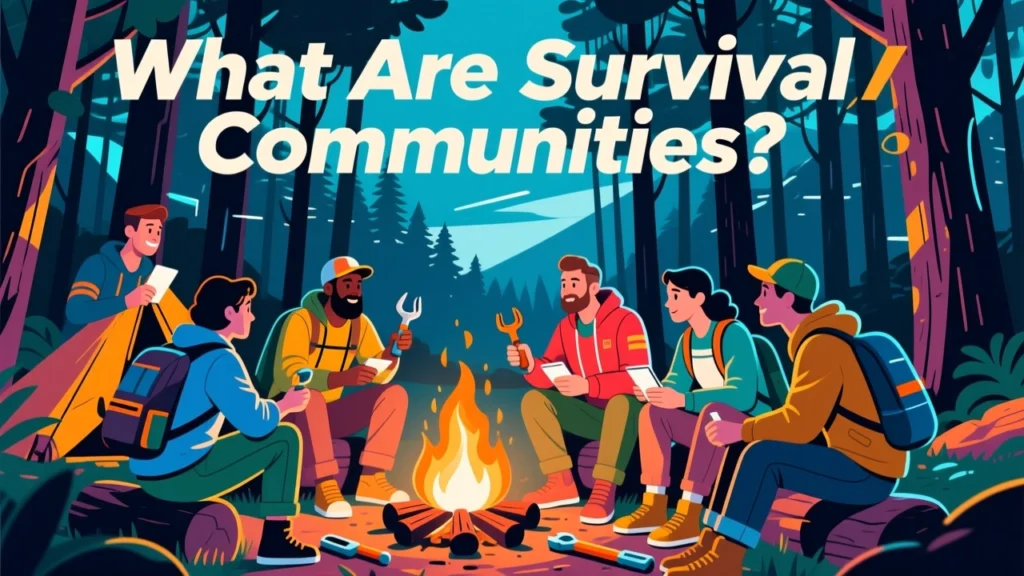
Survival communities are groups of people who help each other prepare for emergencies. They share practical tips and survival skills. These groups can be online or in real life. They focus on being ready for anything. Like bad weather or power outages. Join one to learn more about urban survival tips. It can help you learn a lot.
These communities build self-reliance. They teach urban survival skills and how to find, stock and store prepper supplies. Members swap ideas on water purification or food storage. Offline groups meet in person. Online ones use can forums or apps. You can have hybrid online and offline groups. Groups can make you stronger. They turn lone preppers into teams. This is key in tough times.
Survival communities also tie to financial sovereignty. They share ways to save money on gear. Or use DeFi for group funds. They pool resources via multi-signature wallets. Tech tools help them stay connected. Like apps for navigation and communication. They make planning easy. We learn from each other. This builds trust and skills.
In survival communities, everyone helps. New people learn basics. Like information about first aid and medical supplies. Old members teach advanced stuff. Like building emergency shelters. It’s a place to ask questions. No judgment. You can ask about security and self-defense. Got great answers. This makes prepping fun. Not scary.
Online Survival Communities
Online survival communities are easy to join. They are on forums and social media. You can learn from home. No travel needed. They talk about urban survival tactics. Share prepper supplies lists. It’s often free and open 24/7.
These groups can be useful. They cover water storage for preppers. And medical supplies prepping. Members post photos and videos of their setups. You can ask for advice on survival gardening. Or off grid prepping. It’s a great way to connect. From anywhere in the world.
Survival and prepping websites are often good. They have threads on things such as the pillars of survival. And prepping with kids. You can read old posts. Learn from past talks. They help build knowledge fast. Without leaving your chair.
Online groups also use apps. Like our Telegram and Discord. It’s for communication ideas. Share secure messaging tips. Or DeFi projects. These tools make talking easy. Even in emergencies. Join one today. Start small. Read first. Then post. You will learn a lot.
Offline Survival Communities
Offline survival communities meet in person. They are local groups. You can find them on Meetup.com. Search for “Preppers” in your area. They do hands-on training. Like shelter building techniques. Or fire starting and maintenance. You can learn things like hunting, trapping, and fishing tips.
These groups build real bonds. They practice together. Like gardening and sustainable farming. Or foraging and identifying edible plants. You can trade and barter prepper supplies. It’s fun and useful. In tough times, you have friends nearby. For help with security and self-defense.
Look for local clubs. Like scouting or hiking groups. They teach urban survival skills. Or join farms for survival garden work. In Michigan, there’s a preppers group. They share medical supplies for preppers. Find one near you. Search online first. Then meet up. It’s safe and builds trust.
Offline groups also plan for crisis by stockpiling doomsday prepping supplies. They do drills and practice exercises. Like navigation and communication tests. You learn urban survival tactics. In real settings. You can practice with them. It makes skills stick. Plus, you make friends for life.
Benefits of Joining Survival Communities
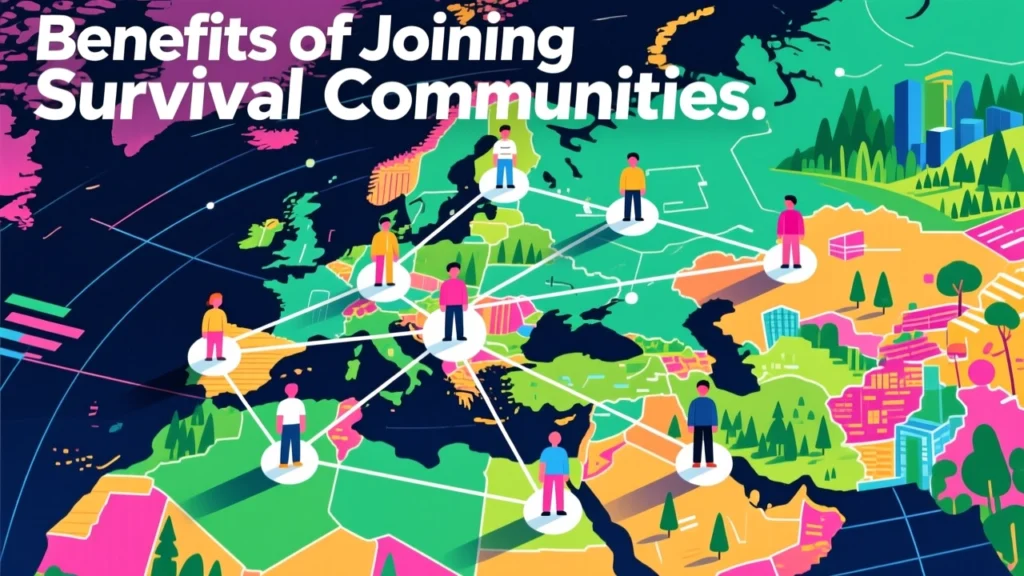
Joining survival communities has many benefits. You learn new skills. Like water purification and storage. Or food storage and preservation. Members share what works. What does not. This saves time and money. You can learn skills such as prepper first aid from groups. It helped me stock medical supplies prepping.
These groups build mental toughness. You talk about fears. Get support. This makes you stronger. In crises, you are not alone. You have help. For urban survival or wilderness survival. Communities also pool resources. Share prepper supplies. This cuts costs. Makes prepping easier for all.
Another benefit is networking. You meet people with skills. Like gardening for survival. Or off grid prepping. Trade knowledge. In real life groups, practice together. Like diy survival shelter. Online, get quick answers. On long term food preservation. Both ways help you grow.
Communities boost self-reliance. But together. You learn why is physical strength important in survival. Do group workouts. Tie to survival fitness. This makes you fit and connected.
Pitfall: Some groups have bad info. Check facts.
Benefit: Real friends in tough times.
| Benefit | How It Helps | Pitfall |
|---|---|---|
| Skill Sharing | Learn urban survival techniques from others. | Wrong info spreads fast. |
| Resource Pooling | Share doomsday prepping supplies to save money. | Trust issues with sharing. |
| Mental Support | Talk about prepping with kids for family tips. | Group drama can stress you. |
| Practice Drills | Do survival exercise together for fitness. | Bad weather cancels meets. |
How to Find and Join Survival Communities
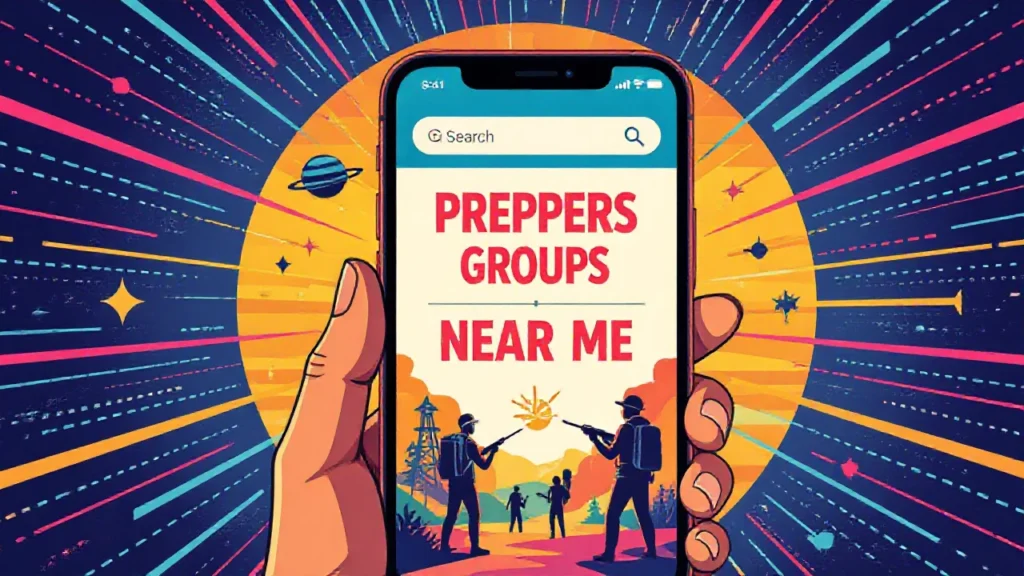
Finding survival communities is simple. Start online. Search for “preppers groups near me”. Use Meetup.com. They have events for urban survival.
For offline, check Facebook groups. Like “{Your Location} Preppers”. They plan meet-ups. Go to prepper expos. Or gun shows. Meet people there. Start small. Attend one event. See if it fits. Safety first. Meet in public places.
Join our Telegram. It’s online but feels close. Talk survival workout. Or prepper fitness. From there, find local friends. Use apps like Nextdoor. Post about your survival garden. Attract like minds. Be careful online. Don’t share too much at first.
Once found, join easy. Sign up free. Introduce yourself. Say what you know. Like fitness for survival. Offer help. Ask questions on why is physical strength important in survival. Active members get more. This builds trust. Leads to real friendships.
Building Your Own Survival Community
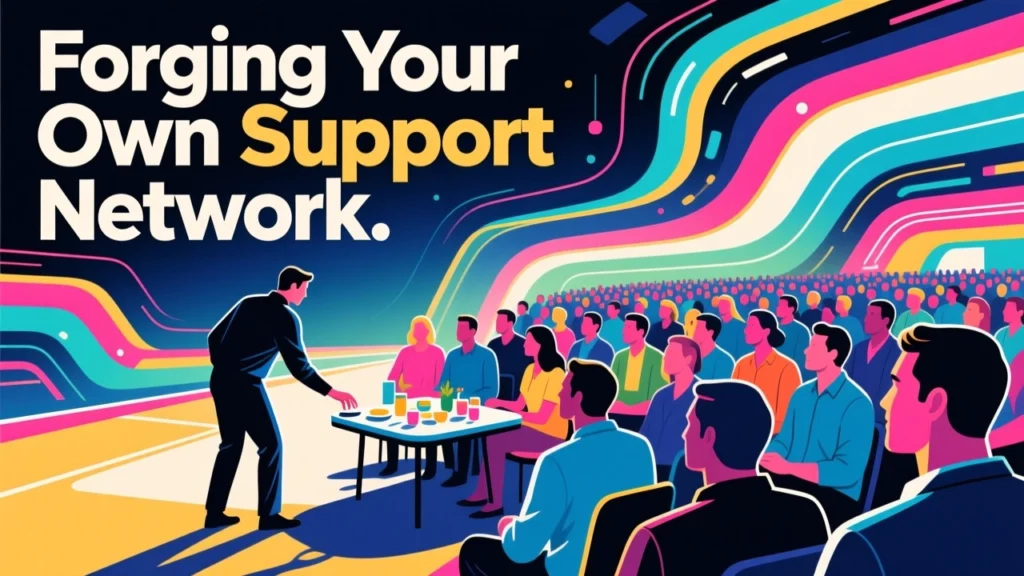
If no group fits, build one. Start small. Invite friends. Talk survival prepping. Meet at parks. Share practical tips.
Online, make a group. Use Facebook or Reddit. Name it “Survival Communities Near Me”. Post about urban navigation. Invite others. Use rules. Keep it positive. Focus on help. Not fear.
Offline, host meets. Teach first aid and medical supplies. Or food storage and preservation. Use free spots. Like libraries. Grow slow. Check people. Build trust. This makes a strong group. Ready for emergencies.
Keep it going. Plan regular meets. Online chats weekly. Offline monthly. Share wins. Like new survival garden. Fix problems together. This builds bonds. Makes everyone better preppers.
Tying Survival Communities to Financial Sovereignty and Tech Tools
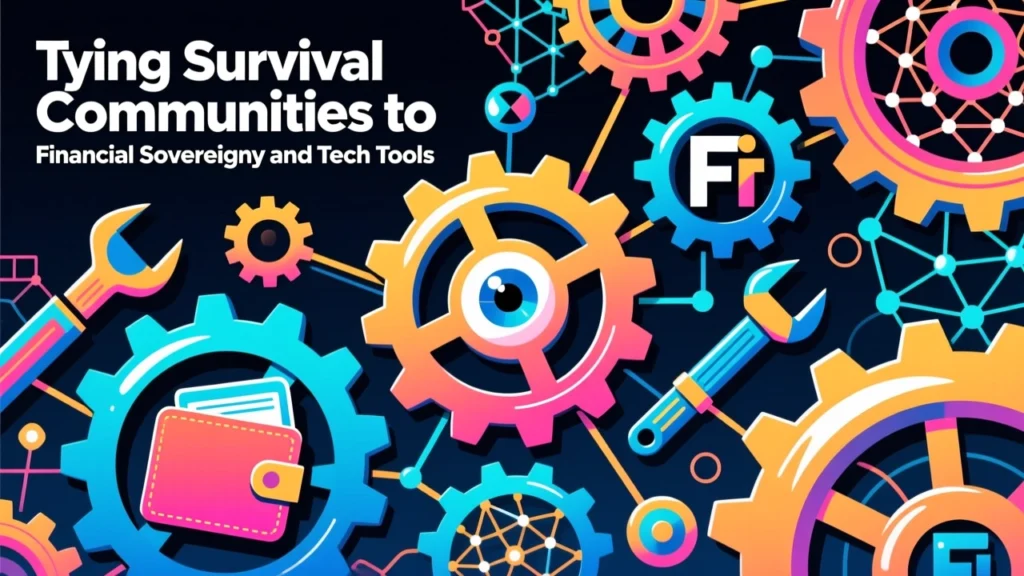
Survival communities link to financial sovereignty. Use DeFi for group funds. Like pooling money in a DAO. Buying prepper supplies together. Cheaper. Faster. Use cryptocurrencies and blockchain for trades.
In emergencies, DeFi keeps money flowing. No banks needed. Communities use decentralized exchanges and wallets. Like Trust Wallet. For quick help. This builds self-reliance. Tie to lending, borrowing, and yield farming. Fund survival gear.
Tech tools help communities talk. Use decentralized communication. Like mesh networks. For when internet fails. Bluetooth for local. LoRaWAN for far. I plan on testing these. Share in groups. Keeps us connected in crises.
Use blockchain for emergencies. Track supplies. Or send help fast. Circuits and custom tech build radios. Low cost. Communities learn together. Like in workshops. This mixes tech knowledge with survival prepping.
Join Our Community and Start Today
Bobbiesbunker.com is about growing together. Join survival communities now. Online or offline. Learn urban survival tips. Share prepper supplies. Build bonds. For a stronger future.

Start with our Telegram, Epic AI, DeFi and Technological Tomfoolery. Talk survival workout. Or off grid prepping. Every chat helps. Dive in today. Build your network. Be ready for tomorrow.
The bunker isn’t buried in fear, it’s encrypted, in your mind, filled with courage!
Common Questions About Survival Communities
What are the benefits of survival communities?
They share skills and support. Help with prepper medical supplies. Build mental toughness.
How do I find survival communities near me?
Use Meetup or Facebook. Search “prepper groups near me“. Start online.
Are online survival communities safe?
Yes, if careful. Don’t share personal info first. Use secure messaging.
How can DeFi help survival communities?
Use it for group funds. Buy doomsday prepping supplies together.
What tech tools do survival communities use?
Apps for decentralized communication. Like mesh networks for chats.
